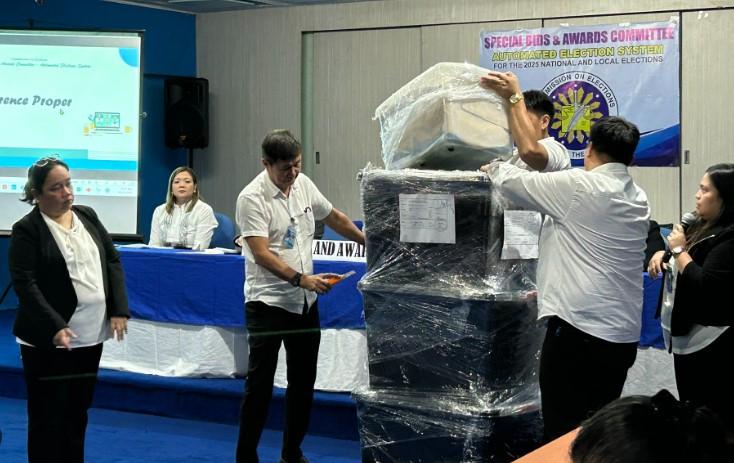
Ni ROMEO ALLAN BUTUYAN II
NAGBABALA ang isang kongresista sa di umano’y nakaambang failure of election sa halalan sa Mayo ng susunod na taon. Ang dahilan – hindi pa nareresolba ng Commission on Elections (Comelec) ang kuwestyunableng P18-billion contract sa South Korean firm na Miru Systems Co. Ltd. para sa automated election system (AES).
Ayon kay Rizal 2nd District Rep. Emigdio “Dino” Tanjuatco III, hindi malayong magdeklara ng failure of election bunsod ng usapin sa prototype machines at non-compliant system ng Miru.
Hinimok din ni Tanjuatco ang publiko na maging mapagmatyag at bantayan ang tunay na usapin sa bilyones na kontratang binigay ng Comelec sa nasabing foreign entity.
“Eyes on the ball, Filipinos. Comelec still has to answer many issues on prototype machines and noncompliant systems. Let us not be distracted by all this noise,”pahayag ng vice-chairperson ng House Committee on Foreign Affairs at member for the majority ng House Committee on Suffrage and Electoral Reforms.
“If the machines fail spectacularly on Election Day in 2025 and the whole country is plunged into chaos, then we only have ourselves to blame for being sidetracked by this circus,” dagdag pa niya.
Una nang kinuwestyon ni Tanjuatco ang paggamit ng prototype vote-counting machine (VCM) sa demo ng Miru noong nakaraang buwan ng Pebrero, na hindi lamang aniya salungat sa nakatakda sa AES procurement’s terms of reference (TOR), bagkus ay hindi rin ito pinapayagan sa ilalim ng Automated Election Law.
Ipinahayag ng South Korean firm na gagamit ito ng hybrid system na automated counting machines Direct Recording Electronic (DRE) at Optical Mark Reader (OMR) – bagay na inalmahan ng ilang miyembro ng Kamara lalo pa anila’t hindi pa nasusubukan ang naturang sistema sa nakaraang halalan sa Pilipinas at maging sa iba pang bansa.
“Reports had shown that Miru had only rolled out these two systems separately, and never as a combination. Miru’s utilization of both the DRE and OMR systems had been problematic during recent elections held in Iraq and the Democratic Republic of the Congo (DRC), respectively,” giit ni Tanjuatco.
Diin pa ng mambabatas, sa ilalim ng Section 10 ng Republic Act 9369, ang AES na kinontrata ng Comelec “must have demonstrated capability and been successfully used in a prior electoral exercise here or abroad.”
“It’s a big red flag that the Automated Election Law has been violated. It does not help that Miru had been unsuccessful in using the DRE and OMR on separate occasions,” ani Tanjuatco.
“Imagine if Miru will use the untested DRE-OMR hybrid in our elections next year. We Filipino voters will be guinea pigs, with no certainty that our votes will be collected efficiently and counted correctly.”



